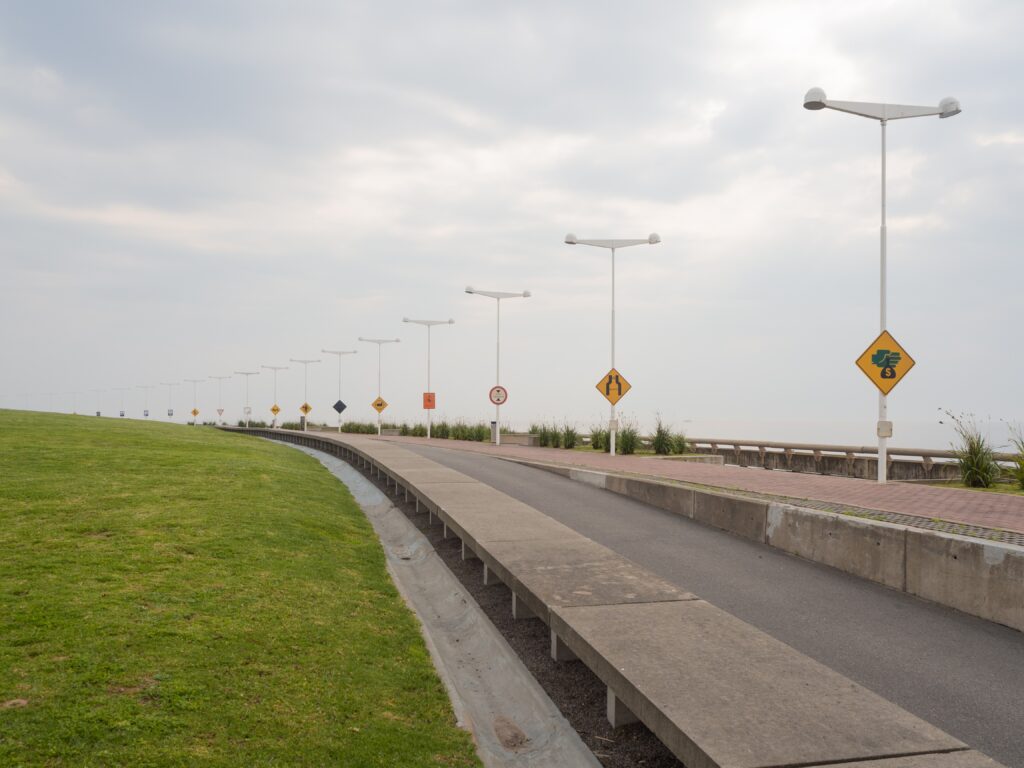What is smart parking management system: Smart Parking Management System is the future of car parking. It uses technology to streamline the parking process. Gone are the days when people use to struggle on the busy lanes to find a suitable spot for their parking. The traditional parkings are old now.
Pakistan is moving to smart parking management systems like the rest of the world. By integrating IoT devices, real-time data, and smart sensors, these systems will transform the way we park.
Curious to know how it all comes together? Let’s move to know what smart parking systems are and how they operate to make parking hassle-free.
What is Smart Parking Management System?
A Smart Parking Management System is an advanced parking solution that uses technology to optimize parking operations. It helps drivers to locate available spaces faster and reduces traffic congestion, hence improving overall parking efficiency.
A smart parking management system is the future of every country, and it is implemented in many countries. In the future, it will be implemented in more regions worldwide as governments and businesses recognize the benefits of reducing congestion, improving efficiency, and optimizing parking infrastructure.
These systems rely on sensors, cameras, real-time data analytics, and mobile applications to provide instant parking information in shopping malls, airports, or city streets. In short, smart parking systems simplify finding and managing parking spaces.
What is Smart Parking Management System and How does it work?
The system operates through a network of sensors and cameras installed in parking areas. These devices detect whether a parking space is occupied or vacant. The collected data is transmitted to a central server, which processes the information and updates a digital platform in real time. This platform can be accessed through mobile applications, web interfaces, or digital signboards, guiding drivers to available parking spaces.
For example, when a car enters a parking facility, sensors detect its movement and track available spaces. The system then directs the driver to the nearest vacant spot using mobile notifications or LED indicators. Some systems integrate payment solutions, allowing drivers to pay parking fees automatically through mobile wallets or credit cards. This eliminates the need for manual ticketing and cash payments, making the process more efficient.
Components of a Smart Parking Management System
A smart parking system consists of multiple components working together to provide functionality. The most important ones include:
- Sensors: These are installed in individual parking spaces to detect vehicle presence. They send data to the central system.
- Cameras: High-resolution cameras are used for vehicle identification, security, and monitoring of parking violations.
- Central Management System: This is the core of the smart parking system. It processes data from sensors and cameras, updating the database and guiding users.
- Mobile and Web Applications: These platforms allow users to check parking availability, book spots in advance, and make payments online.
- Automated Payment Systems: Many smart parking solutions come with integrated payment options, allowing users to pay via digital wallets, credit cards, or even automatic license plate recognition-based billing.
- Digital Display Boards: In large parking areas, digital boards help direct vehicles to available spots by showing real-time space availability.
Types of Smart Parking Systems
Smart parking systems vary based on their implementation and use cases. Some of the most common types include:
- On-Street Smart Parking
- Off-Street Smart Parking: Found in private facilities like shopping malls, airports, and office buildings, these systems control vehicle entry, exit, and payments automatically.
- Automated Parking Systems (APS)
- Guided Parking Systems
On-Street smart parking systems are used in urban areas where they guide drivers to locate available roadside parking spaces through digital maps and apps. On the other hand, Off-street smart parking systems are found in private facilities like shopping malls, airports, and other buildings. Off-street smart parking also controls the vehicle’s entry, exit, and payment automatically.
APSs are fully automated, where vehicles are parked and retrieved using robotic systems. This eliminates the need for drivers to search for a space manually.
Guided parking systems include LED indicators that change colors to signal available, occupied, or reserved spaces. These are mostly used in parking lots to improve navigation.
Benefits of a Smart Parking Management System
Smart parking systems offer numerous advantages for both drivers and parking facility operators. One of the main benefits is reduced traffic congestion. By helping drivers find parking quickly, these systems minimize the number of cars circling in search of spaces, which in turn reduces fuel consumption and air pollution.
Another significant advantage is convenience. Drivers no longer have to waste time looking for parking, as real-time updates guide them directly to available spots.
For parking operators, smart systems improve revenue management. Automated payments eliminate cash handling, reducing the chances of fraud. The data collected also allows operators to optimize pricing, manage peak-hour demand, and track usage patterns.
Security is another key benefit. With cameras monitoring the premises, incidents such as theft, vandalism, or unauthorized parking can be controlled effectively.
Challenges and Limitations In Pakistan
Despite its advantages, implementing a smart parking system comes with challenges. The initial investment in sensors, cameras, and software can be high, making it difficult for some cities or businesses to adopt the technology.
Maintenance is another concern, as faulty sensors or outdated software can disrupt operations. Additionally, these systems require a stable internet connection to function efficiently, which may not always be available in certain areas.
Another issue is user adoption. Some drivers may be reluctant to rely on digital platforms for parking, preferring traditional methods instead. Educating the public and ensuring the system is user-friendly can help overcome this challenge.
Who are Using Smart Parking Systems?
Since we now know what are smart parking management system, lets see who are using it! Many cities and private businesses have already implemented smart parking solutions. Airports use them to manage large volumes of vehicles efficiently, while shopping malls provide app-based parking reservations.
In urban centers, smart parking helps reduce congestion by guiding drivers to the nearest available space. Some governments have integrated these systems with smart city initiatives, combining parking data with traffic management systems for better mobility solutions.
Future of Smart Parking
The future of smart parking systems looks promising as technology continues to evolve. Artificial intelligence and machine learning will further improve efficiency by predicting parking demand and optimizing space allocation.
More cities in Pakistan are expected to adopt smart parking as part of their urban planning strategies, integrating these systems with electric vehicle charging stations and other smart city initiatives. As costs decrease and technology becomes more accessible, smart parking will become the standard rather than the exception.
To conclude, a Smart Parking Management System is a practical solution to modern parking challenges. It uses technology to make parking more efficient, reducing congestion, saving time, and improving security. Although there are some challenges, the benefits outweigh the drawbacks, making it a valuable investment for cities and businesses. As technology advances, smart parking will continue to play a crucial role in shaping the future of urban mobility.
Frequently Asked Questions
Are there different types of Smart Parking Systems?
Yes, there are various types, including on-street and off-street systems, as well as automated parking solutions that use robotics to park vehicles.
Are Smart Parking Systems suitable for small properties?
Yes, they can be adapted for small properties, including housing societies, to optimize parking space usage.
Do Smart Parking Systems require GPS modules for each sensor?
No, since parking spaces are fixed, their locations are set during installation, eliminating the need for individual GPS modules.
Can companies reserve parking spaces using a Smart Parking System?
No, companies cannot reserve any parking space. Once a parking permit is activated, users can park anywhere within the designated area without the need for specific reservations.









